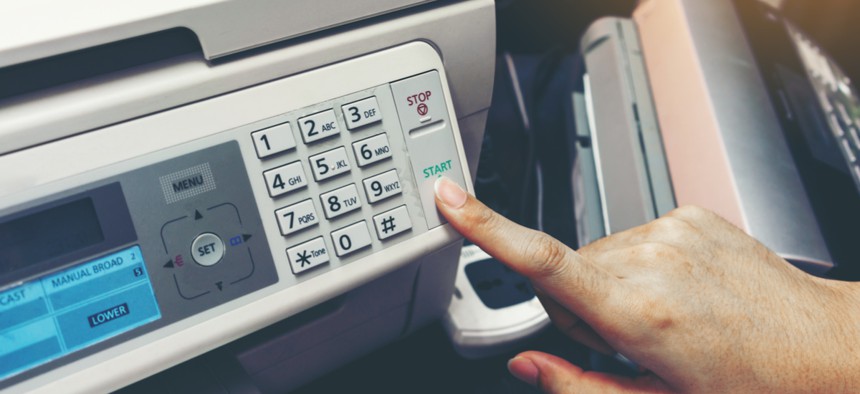Blockchain May Finally Rid the World of Fax Machines

PK289/Shutterstock.com
Another reason Blockchain has captivated the financial industry.
The finicky, archaic fax machine still somehow survives in the back offices of some big financial institutions. But this technology may finally face extinction as execs update their operations with blockchain-based systems.
Take SEB, a Nordic bank that is working with Nasdaq to create a new mutual fund trading platform. Right now, the process can involve placing orders by fax and following up with phone calls, just the sort of lengthy, manual routine that’s ripe for automation. The companies think blockchain technology, the distributed ledger that backs bitcoin, could improve the process. Similarly, Daimler, the maker of Mercedes-Benz cars, is working with a German bank on a blockchain-based loan process that would allow it to scrap its fax machines once and for all.
Blockchain has captivated the financial industry: companies are investing in and testing the technology in hopes that it can streamline costly back-office administrative tasks and speed up transactions. Santander InnoVentures has forecast that blockchain could reduce banking costs by as much as $20 billion annually by 2022.
Of course, there are many ways to overhaul creaky systems, and blockchain may not always be the best. A distributed ledger seems promising for SEB’s mutual fund platform, however, because the Swedish fund market lacks a central entity that records fund holdings. Blockchain, meanwhile, is designed to preclude a central authority. SEB’s prototype with Nasdaq would let users subscribe to a private blockchain, so that fund companies and distributors can share the database across a private network. Transactions will be registered in real time among everyone using it.
For many advocates of bitcoin, invented by Satoshi Nakamoto, the ultimate goal is to make the state-controlled fiat money system obsolete. Whether or not that happens, it looks like the humble image-sending technology invented by Alexander Bain will be wiped out in the revolution.





